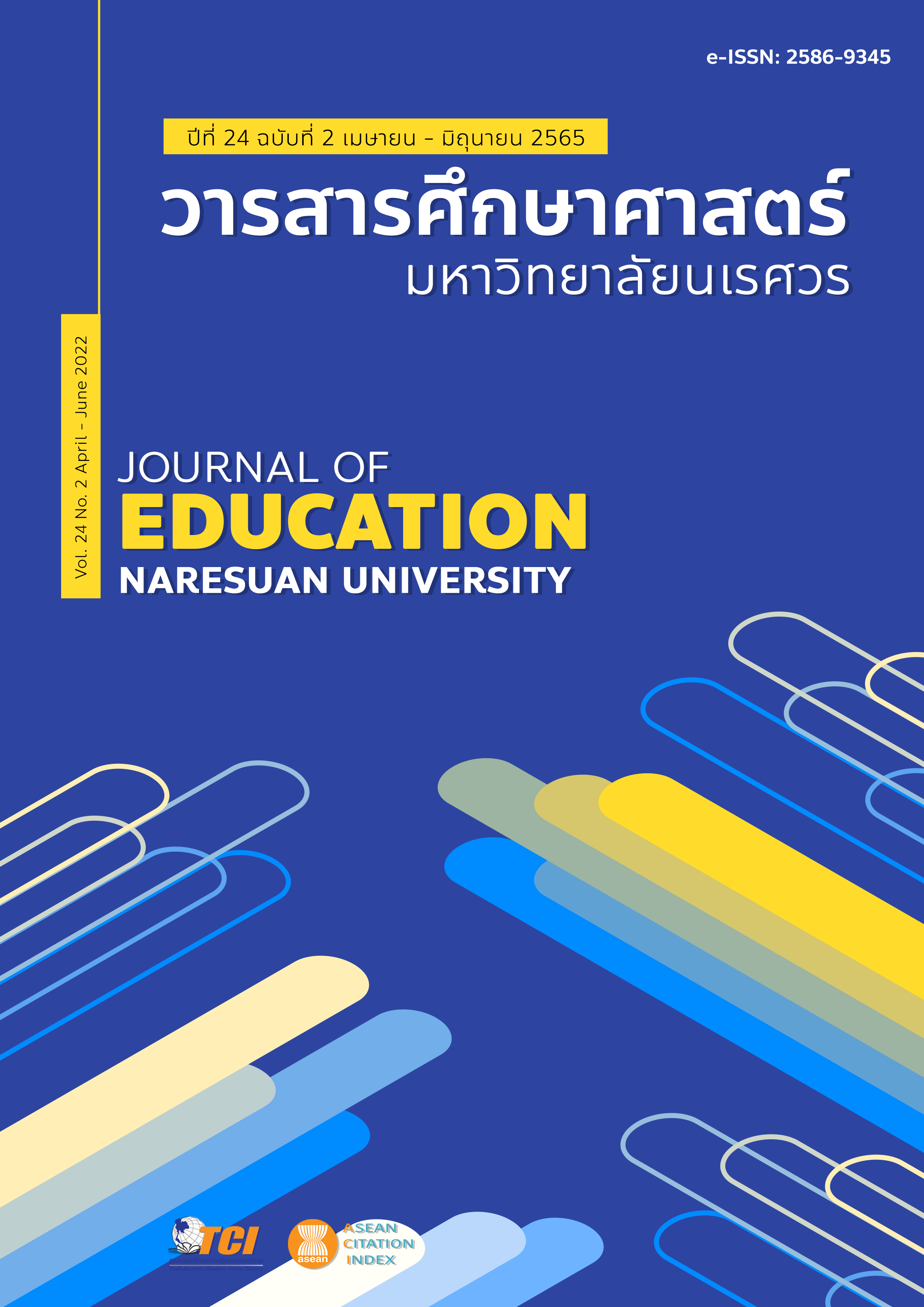TEACHING AND TECHNOLOGY: A TRANSCENDENTAL PHENOMENOLOGY OF SELECT FILIPINO TEACHERS’ EXPERIENCES IN THE NEW NORMAL
Main Article Content
Abstract
This phenomenological study investigates the experiences of select Filipino teachers on teaching in the new normal. Through an online qualitative survey, the teachers were asked open-ended questions on their experiences in online classes. Consequently, the transcendental analysis on the gathered responses revealed three main themes—the challenges teachers encountered, the coping strategies they employed, and their use of technology. The said themes answered the research questions in the study and guided the researcher to imply several suggestions for stakeholder support, teacher training, and school administrators.
Article Details

This work is licensed under a Creative Commons Attribution-NonCommercial-NoDerivatives 4.0 International License.
The owner of the article does not copy or violate any of its copyright. If any copyright infringement occurs or prosecution, in any case, the Editorial Board is not involved in all the rights to the owner of the article to be performed.
References
Bongco, R. T., & David, A. P. (2020). Filipino teachers’ experiences as curriculum policy implementers in the evolving K to 12 landscape. Issues in Educational Research, 30(1), 19- 34.
Braun, V., Clarke, V., Boulton, E., Davey, L., & McEvoy, C. (2020). The online survey as a qualitative research tool. International Journal of Social Research Methodology, 1-14. https://doi.org/10.1080/13645579.2020.1805550
Cahapay, M. B. (2021). Involvement of Parents in the Remote Learning of Children amid COVID-19 Crisis in the Philippines: A Transcendental Phenomenology. International Journal of Sociology of Education. http://doi.org/10.17583/rise.2021.7317
Dworkin, S. L. (2012). Sample size policy for qualitative studies using in-depth interviews. Archives of Sexual Behavior, 41, 1319–1320. https://doi.org/10.1007/s10508-012-0016-6
Espino-Díaz, L., Fernandez-Caminero, G., Hernandez-Lloret, C. M., Gonzalez-Gonzalez, H., & Alvarez-Castillo, J. L. (2020). Analyzing the impact of COVID-19 on education professionals. toward a paradigm shift: ICT and neuroeducation as a binomial of action. Sustainability, 12(14), 5646. https://doi.org/10.3390/su12145646
Falloon, G. (2020). From digital literacy to digital competence: the teacher digital competency (TDC) framework. Educational Technology Research and Development, 68. https://doi.org/10.1007/s11423-020-09767-4
Kaiser, L. M., Großmann, N., & Wilde, M. (2020). The relationship between students’ motivation and their perceived amount of basic psychological need satisfaction–a differentiated investigation of students’ quality of motivation regarding biology. International Journal of Science Education, 42(17), 2801-2818. https://doi.org/10.1080/09500693.2020.1836690
Kim, J. (2020). Learning and teaching online during Covid-19: Experiences of student teachers in an early childhood education practicum. International Journal of Early Childhood, 52, 145–158. https://doi.org/10.1007/s13158-020-00272-6
Lepp, L., Aaviku, T., Leijen, Ä., Pedaste, M., & Saks, K. (2021). Teaching during COVID-19: The decisions made in teaching. Education Sciences, 11(2), 47. http://dx.doi.org/10.3390/educsci11020047
Marek, M. W., Chew, C. S., & Wu, W. V. (2021). Teacher experiences in converting classes to distance learning in the COVID-19 pandemic. International Journal of Distance Educational Technology, 9, 89–109. https://doi.org/10.4018/IJDET.20210101.oa3
Moustakas, C. (1994). Phenomenological research methods. Thousand Oaks, CA: Sage publications.
Perifanou, M., Economides, A., & Tzafilkou, K. (2021). Teachers’ digital skills readiness during COVID-19 Pandemic. International Journal of Emerging Technologies in Learning, 16(8), 238-251. https://doi.org/10.3991/ijet.v16i08.21011
Petzold, A. M. (2020). Letter to the editor: Resources and recommendations for a quick transition to online instruction in physiology. Advances in Physiology Education, 44, 217-219. https://doi.org/10.1152/advan.00049.2020
Portillo, J., Garay, U., Tejada, E., & Bilbao, N. (2020). Self-Perception of the Digital Competence of Educators during the COVID-19 Pandemic: A Cross-Analysis of Different Educational Stages. Sustainability, 12(23), 10128. http://dx.doi.org/10.3390/su122310128
Rachmadtullah, R., Aliyyah, R. R., Samsudin, A., Syaodih, E., Nurtanto, M., & Tambunan, A. R. S. (2020). The Perceptions of Primary School Teachers of Online Learning during the COVID-19 Pandemic Period: A Case Study in Indonesia. Journal of Ethnic and Cultural Studies, 7(2), 90-109. http://dx.doi.org/10.29333/ejecs/388
Sari, D. K., & Maningtyas, R. T. (2020). Parents’ involvement in distance learning during the Covid-19 Pandemic. Advances in Social Science, Education and Humanities Research, 487. https://doi.org/10.2991/assehr.k.201112.018
Sánchez-Cruzado, C., Santiago Campión, R., & Sánchez-Compaña, M. T. (2021). Teacher digital literacy: The indisputable challenge after COVID-19. Sustainability, 13(4), 1858. http://dx.doi.org/10.3390/su13041858
Sokal, L., Trudel, L. E., & Babb, J. (2020). Canadian teachers’ attitudes toward change, efficacy, and burnout during the COVID-19 pandemic. International Journal for Educational Research Open. https://doi.org/10.1016/j.ijedro.2020.100016
Watson, E. (2020). One teacher’s experience during the COVID-19 school closures. Childhood Education, 96(3), 42-45. https://doi.org/10.1080/00094056.2020.1766658


